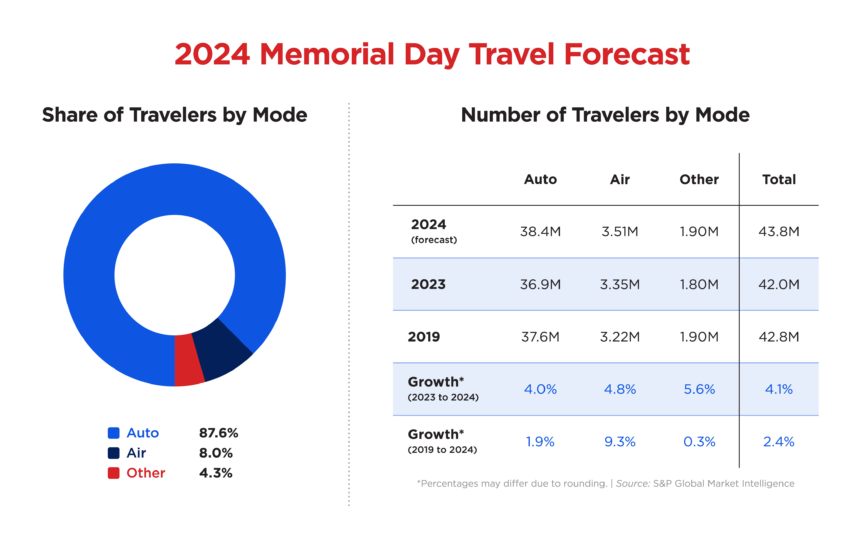AAA says near record traveler numbers over Memorial Day weekend
Expect a busy travel weekend on the roads, in the air, and on the rails over the Memorial Day weekend, according to the American Automobile Association, or AAA. They believe the number of travelers during the Memorial Day weekend, from Thursday, May 23 to Monday, May 27, to be closing to matching the 2005 pre-pandemic record of 44 million travels. AAA projects 43.8 million Americans will be heading to destinations of more than 50 miles from their home during that time period. The figure is a four-percent increase from last year.
“We haven’t seen Memorial Day weekend travel numbers like these in almost 20 years,” said Paula Twidale, Senior Vice President of AAA Travel. “We’re projecting an additional one million travelers this holiday weekend compared to 2019, which not only means we’re exceeding pre-pandemic levels but also signals a very busy summer travel season ahead.”
AAA projects 38.4 million people will travel by car over Memorial Day weekend, the highest number for that holiday since AAA began tracking in 2000. The number of drivers this year is up four percent compared to last year and 1.9 percents higher than in 2019.

This Memorial Day weekend drivers can expect similar gas prices as last year when the national average was roughly $3.57. Pump prices rose this spring but have held somewhat steady in recent weeks. Prices may creep higher as the summer driving season gets underway. The wildcard remains the cost of oil, and unlike last year, there are now two wars – in the Middle East and Ukraine – that could roil the oil market.
Airports are also bracing for a spike in travelers. AAA expects 3.51 million air travelers this holiday weekend, an increase of 4.8 percent over last year and a nine percent jump compared to 2019. This will be the most crowded Memorial Day weekend at airports since 2005, when 3.64 million flew for the holiday as the travel industry finally rebounded post 9/11.
Nearly two million people are expected to travel by other modes of transportation, including buses, cruises, and trains.
INRIX, a provider of transportation data and insights, says drivers leaving Thursday or Friday should hit the road early to avoid mixing with commuters. Travelers going back home on Sunday or Monday should avoid the afternoon hours when return trips will peak.
“Travel times are expected to be up to 90 percent longer than normal. Travelers should stay up to date on traffic apps, 511 services, and local news stations to avoid sitting in traffic longer than necessary,” said Bob Pishue, transportation analyst at INRIX.






